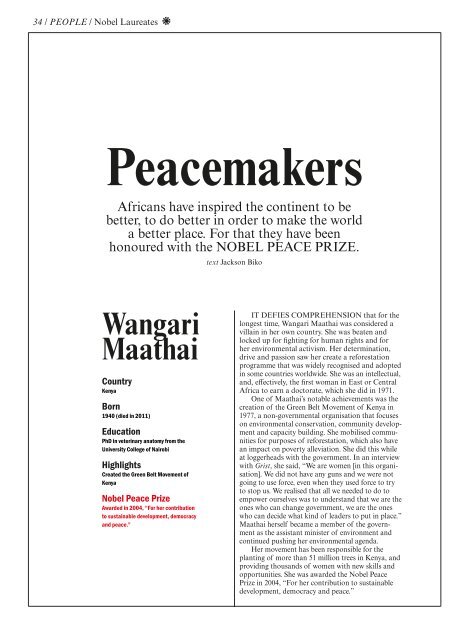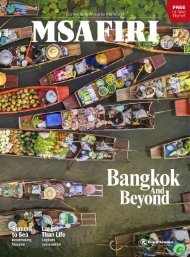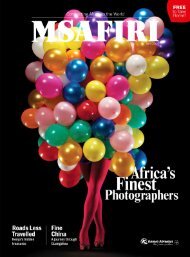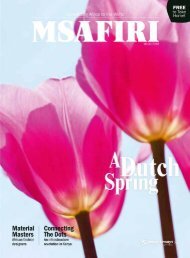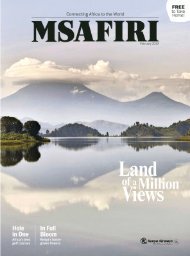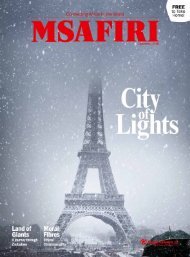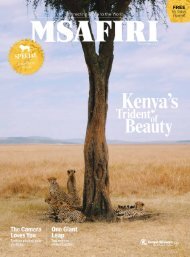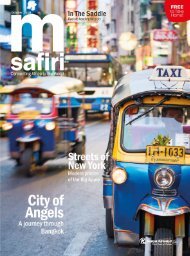Create successful ePaper yourself
Turn your PDF publications into a flip-book with our unique Google optimized e-Paper software.
34 / PEOPLE / Nobel Laureates<br />
PEOPLE / 35<br />
“It’s the little things<br />
citizens do. That’s<br />
what will make the<br />
difference. My little<br />
thing is planting trees”<br />
Peacemakers<br />
Africans have inspired the continent to be<br />
better, to do better in order to make the world<br />
a better place. For that they have been<br />
honoured with the NOBEL PEACE PRIZE.<br />
text Jackson Biko<br />
Wangari<br />
Maathai<br />
Country<br />
Kenya<br />
Born<br />
1940 (died in 2011)<br />
Education<br />
PhD in veterinary anatomy from the<br />
University College of Nairobi<br />
Highlights<br />
Created the Green Belt Movement of<br />
Kenya<br />
Nobel Peace Prize<br />
Awarded in 2004, “For her contribution<br />
to sustainable development, democracy<br />
and peace.”<br />
IT DEFIES COMPREHENSION that for the<br />
longest time, Wangari Maathai was considered a<br />
villain in her own country. She was beaten and<br />
locked up for fighting for human rights and for<br />
her environmental activism. Her determination,<br />
drive and passion saw her create a reforestation<br />
programme that was widely recognised and adopted<br />
in some countries worldwide. She was an intellectual,<br />
and, effectively, the first woman in East or Central<br />
Africa to earn a doctorate, which she did in 1971.<br />
One of Maathai’s notable achievements was the<br />
creation of the Green Belt Movement of Kenya in<br />
1977, a non-governmental organisation that focuses<br />
on environmental conservation, community development<br />
and capacity building. She mobilised communities<br />
for purposes of reforestation, which also have<br />
an impact on poverty alleviation. She did this while<br />
at loggerheads with the government. In an interview<br />
with Grist, she said, “We are women [in this organisation].<br />
We did not have any guns and we were not<br />
going to use force, even when they used force to try<br />
to stop us. We realised that all we needed to do to<br />
empower ourselves was to understand that we are the<br />
ones who can change government, we are the ones<br />
who can decide what kind of leaders to put in place.”<br />
Maathai herself became a member of the government<br />
as the assistant minister of environment and<br />
continued pushing her environmental agenda.<br />
Her movement has been responsible for the<br />
planting of more than 51 million trees in Kenya, and<br />
providing thousands of women with new skills and<br />
opportunities. She was awarded the Nobel Peace<br />
Prize in 2004, “For her contribution to sustainable<br />
development, democracy and peace.”<br />
Hollandse Hoogte


